Re-thinking the Poverty Narrative
Income inequality in the U.S. hit a record high in 2019, and the coronavirus pandemic has put new strains on our country’s social safety net. More than ever, poverty is a factor on every beat in the newsroom – whether you’re covering city hall, national politics, education, or business and development. This session will cover why it’s so important to get the poverty narrative right, the intersection of race and poverty, and strategies for impactful reporting that centers the experiences of people with low incomes.

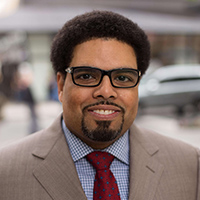
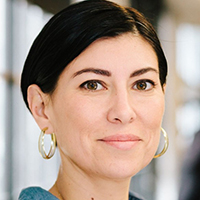

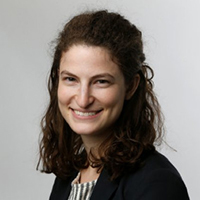

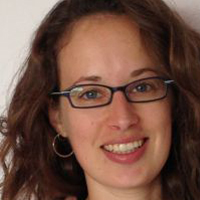
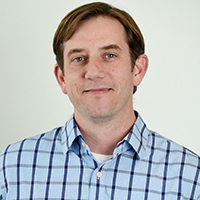
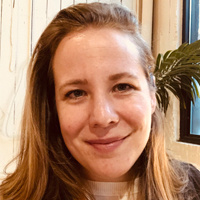
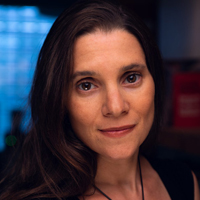
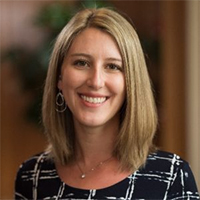
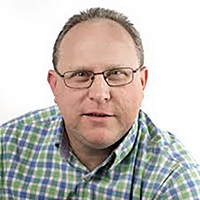
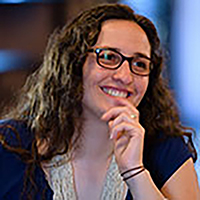

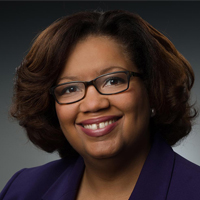
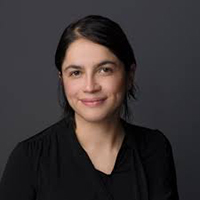
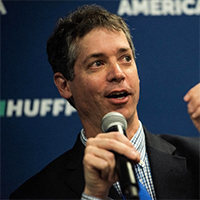
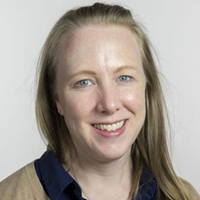
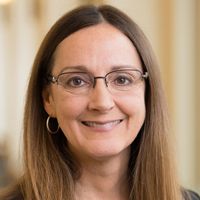
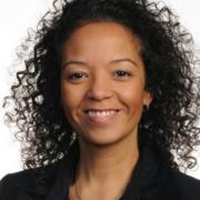
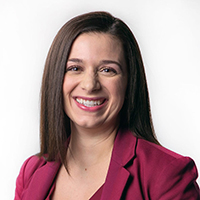

 Harley Etienne is an associate professor of urban and regional planning at the University of Michigan. He teaches in the areas of urban community development, inner-city revitalization, neighborhood change, urban poverty, and qualitative research issues in planning. Etienne’s research focuses primarily on the intersection of social institutions and their relationship to processes of urban neighborhood change. He is keenly interested in the role that colleges and universities play in contributing to neighborhood-level change and regional economic development. In 2012, he released, Pushing Back the Gates: Neighborhood Perspectives on University-Driven Change in West Philadelphia on Temple University Press. After the earthquake in Haiti in 2010, he worked on several projects examining the role of land tenure policy and land rights in the post-earthquake recovery of Port-au-Prince. In 2014, he co-edited a volume, Planning Atlanta which surveys the history, challenges and successes of planning in that city from its earliest beginnings to the present day.
Harley Etienne is an associate professor of urban and regional planning at the University of Michigan. He teaches in the areas of urban community development, inner-city revitalization, neighborhood change, urban poverty, and qualitative research issues in planning. Etienne’s research focuses primarily on the intersection of social institutions and their relationship to processes of urban neighborhood change. He is keenly interested in the role that colleges and universities play in contributing to neighborhood-level change and regional economic development. In 2012, he released, Pushing Back the Gates: Neighborhood Perspectives on University-Driven Change in West Philadelphia on Temple University Press. After the earthquake in Haiti in 2010, he worked on several projects examining the role of land tenure policy and land rights in the post-earthquake recovery of Port-au-Prince. In 2014, he co-edited a volume, Planning Atlanta which surveys the history, challenges and successes of planning in that city from its earliest beginnings to the present day. As associate faculty director at Poverty Solutions, Kristin Seefeldt oversees educational programs and promotes student engagement, with an emphasis on involving doctoral students in research opportunities. She also is an associate professor of social work and public policy.
As associate faculty director at Poverty Solutions, Kristin Seefeldt oversees educational programs and promotes student engagement, with an emphasis on involving doctoral students in research opportunities. She also is an associate professor of social work and public policy. Jonathon Berlin is the leader of the data visualization team at the Chicago Tribune. He has been an adjunct teacher at Northwestern and Columbia College where he’s taught infographics, data visualization and human-centered web design. Berlin was president of the Society for News Design (SND) in 2012.
Jonathon Berlin is the leader of the data visualization team at the Chicago Tribune. He has been an adjunct teacher at Northwestern and Columbia College where he’s taught infographics, data visualization and human-centered web design. Berlin was president of the Society for News Design (SND) in 2012. Jennifer Erb-Downward is a senior research associate at Poverty Solutions at the University of Michigan, developing new projects and proposals related to family homelessness. She also oversees several other research projects and assists with the analysis and translation of research findings to inform local, state, and federal policy recommendations. Erb-Downward joined Poverty Solutions from the Institute for Children, Poverty and Homelessness in New York, where she was the principal policy analyst for initiatives aimed at bringing awareness to family homelessness and for framing the city’s policy agenda on this issue. She has extensive experience in policy analysis, program implementation, and best practice research around family homelessness, behavioral health, chronic illness, and the reduction of health disparities. She has been involved in the development of novel research programs in mental health and cancer prevention, and she is passionate about addressing child homelessness here in Michigan, where she grew up. Erb-Downward holds a master’s degree in public health from New York University.
Jennifer Erb-Downward is a senior research associate at Poverty Solutions at the University of Michigan, developing new projects and proposals related to family homelessness. She also oversees several other research projects and assists with the analysis and translation of research findings to inform local, state, and federal policy recommendations. Erb-Downward joined Poverty Solutions from the Institute for Children, Poverty and Homelessness in New York, where she was the principal policy analyst for initiatives aimed at bringing awareness to family homelessness and for framing the city’s policy agenda on this issue. She has extensive experience in policy analysis, program implementation, and best practice research around family homelessness, behavioral health, chronic illness, and the reduction of health disparities. She has been involved in the development of novel research programs in mental health and cancer prevention, and she is passionate about addressing child homelessness here in Michigan, where she grew up. Erb-Downward holds a master’s degree in public health from New York University. Margaret Dewar is professor emerita at U-M’s Taubman College of Architecture and Urban Planning. She focuses on how urban planners can address issues facing cities that have experienced substantial population and employment loss. Her research projects investigate remaking cities following abandonment and strengthening deteriorated neighborhoods. Dewar’s recent book is “The City after Abandonment” (Philadelphia: University of Pennsylvania Press, 2013), co-edited with June Manning Thomas. Over the last few years, she has analyzed the challenge of preserving affordable housing where incomes are low, the ways residents and community-based organizations can succeed in saving some neighborhoods from the disinvestment mortgage foreclosures caused, and the slow land use transition from derelict structure through demolition to new green uses that enhance neighborhoods. She is evaluating Detroit programs to sell tax foreclosed houses to their occupants, analyzing why Detroit’s tax foreclosure problem is so hard to solve, and assessing ways to prevent evictions as the pandemic continues. Dewar received a Ph.D. in urban studies and planning from the Massachusetts Institute of Technology, a Master of City Planning from Harvard University, and a Bachelor of Arts from Wellesley College.
Margaret Dewar is professor emerita at U-M’s Taubman College of Architecture and Urban Planning. She focuses on how urban planners can address issues facing cities that have experienced substantial population and employment loss. Her research projects investigate remaking cities following abandonment and strengthening deteriorated neighborhoods. Dewar’s recent book is “The City after Abandonment” (Philadelphia: University of Pennsylvania Press, 2013), co-edited with June Manning Thomas. Over the last few years, she has analyzed the challenge of preserving affordable housing where incomes are low, the ways residents and community-based organizations can succeed in saving some neighborhoods from the disinvestment mortgage foreclosures caused, and the slow land use transition from derelict structure through demolition to new green uses that enhance neighborhoods. She is evaluating Detroit programs to sell tax foreclosed houses to their occupants, analyzing why Detroit’s tax foreclosure problem is so hard to solve, and assessing ways to prevent evictions as the pandemic continues. Dewar received a Ph.D. in urban studies and planning from the Massachusetts Institute of Technology, a Master of City Planning from Harvard University, and a Bachelor of Arts from Wellesley College. Afton Branche-Wilson is the assistant director of community initiatives at Poverty Solutions at U-M, where she stewards initiative-wide community engagement activities and conducts research and evaluation projects in Detroit. Previously, she was the community and policy manager at Detroit City Council, where she advanced policy initiatives related to neighborhood beautification and community investment. She also led Council Member Raquel Castañeda-López’s Building Better Blocks program, building the capacity of grassroots leaders in underserved areas to advocate for community change. Before that, she worked at Thomson Reuters Foundation and the Drum Major Institute for Public Policy.
Afton Branche-Wilson is the assistant director of community initiatives at Poverty Solutions at U-M, where she stewards initiative-wide community engagement activities and conducts research and evaluation projects in Detroit. Previously, she was the community and policy manager at Detroit City Council, where she advanced policy initiatives related to neighborhood beautification and community investment. She also led Council Member Raquel Castañeda-López’s Building Better Blocks program, building the capacity of grassroots leaders in underserved areas to advocate for community change. Before that, she worked at Thomson Reuters Foundation and the Drum Major Institute for Public Policy. Ann Choi is a senior data reporter at THE CITY, a news website covering New York City. Previously, she was a data and investigative reporter for Newsday and South Florida Sun Sentinel. Her investigations for Newsday on real estate agents’ discriminatory practices against minority buyers and communities on Long Island won a Peabody and George Polk Award in 2020. She has taught at Craig Newmark Graduate School of Journalism at CUNY, Ohio University and St Joseph’s College. She grew up in South Korea and is a graduate of University of Texas at Austin. She lives in Queens, New York with her husband, son and cat.
Ann Choi is a senior data reporter at THE CITY, a news website covering New York City. Previously, she was a data and investigative reporter for Newsday and South Florida Sun Sentinel. Her investigations for Newsday on real estate agents’ discriminatory practices against minority buyers and communities on Long Island won a Peabody and George Polk Award in 2020. She has taught at Craig Newmark Graduate School of Journalism at CUNY, Ohio University and St Joseph’s College. She grew up in South Korea and is a graduate of University of Texas at Austin. She lives in Queens, New York with her husband, son and cat. Rebecca Labov is a program analyst in the Policy Development and Implementation Division of the Housing and Revitalization Department for the City of Detroit. In this role, she manages strategic initiatives related to multifamily housing, including the preservation of affordable housing and development of strategies for displacement prevention. Most recently, she managed the city’s application for a federal Choice Neighborhoods grant for Greater Corktown, which would support inclusive neighborhood revitalization through key initiatives in areas of housing, community improvements, and supportive services for residents. Prior to her current role, she served as an educator with Detroit Public Schools, developing expertise in teaching, instructional coaching and professional development, and curriculum design. Outside of the classroom, she served as a coach for her schools’ dance team and robotics team and helped launch a community garden with her students. Previously, she worked as an architectural designer of multifamily affordable housing. Her work in diverse fields has been connected and guided by a deep commitment to racial equity and social justice.
Rebecca Labov is a program analyst in the Policy Development and Implementation Division of the Housing and Revitalization Department for the City of Detroit. In this role, she manages strategic initiatives related to multifamily housing, including the preservation of affordable housing and development of strategies for displacement prevention. Most recently, she managed the city’s application for a federal Choice Neighborhoods grant for Greater Corktown, which would support inclusive neighborhood revitalization through key initiatives in areas of housing, community improvements, and supportive services for residents. Prior to her current role, she served as an educator with Detroit Public Schools, developing expertise in teaching, instructional coaching and professional development, and curriculum design. Outside of the classroom, she served as a coach for her schools’ dance team and robotics team and helped launch a community garden with her students. Previously, she worked as an architectural designer of multifamily affordable housing. Her work in diverse fields has been connected and guided by a deep commitment to racial equity and social justice. Camille M. Wilson, Ph.D., is a University Diversity and Social Transformation Professor and Professor of Educational Foundations, Leadership and Policy at the University of Michigan. She explores the intersections of school-family-community engagement, urban educational reform, and transformative leadership. Dr. Wilson’s work highlights the educational advocacy, activism, and school choices of marginalized families of color and the equity-based efforts of school-based leaders striving to serve those families better. She considers these issues—and their interconnections—from critical, gendered, and culturally relevant perspectives. In addition, she addresses how racial and economic inequality intersect in education and explores ways that youth and families of color impacted by poverty can be politically empowered to challenge systemic education inequity.
Camille M. Wilson, Ph.D., is a University Diversity and Social Transformation Professor and Professor of Educational Foundations, Leadership and Policy at the University of Michigan. She explores the intersections of school-family-community engagement, urban educational reform, and transformative leadership. Dr. Wilson’s work highlights the educational advocacy, activism, and school choices of marginalized families of color and the equity-based efforts of school-based leaders striving to serve those families better. She considers these issues—and their interconnections—from critical, gendered, and culturally relevant perspectives. In addition, she addresses how racial and economic inequality intersect in education and explores ways that youth and families of color impacted by poverty can be politically empowered to challenge systemic education inequity. Matt Barnum is Chalkbeat’s national reporter, covering education policy and research. Previously he was a staff writer at The 74, the policy director for Educators for Excellence – New York, and a middle school language arts teacher in Colorado.
Matt Barnum is Chalkbeat’s national reporter, covering education policy and research. Previously he was a staff writer at The 74, the policy director for Educators for Excellence – New York, and a middle school language arts teacher in Colorado. Bonnie Billups, Jr., is the executive director of the Peace Neighborhood Center, a nonprofit in Ann Arbor that provides critical services for children and families. He began his career in supportive services for families and youth at a young age. He first became involved with Peace Neighborhood Center as a child enrolled in the agency’s youth programs back in the early 1970s. Proving himself to be a reliable and mature young man, Billups was hired on as a program assistant at Peace in 1976. He continued in that capacity through 1985, helping the agency expand and establish many long-standing services such as Peace’s Summer Day Camp program in 1982. Billups left the agency in 1985 to travel to California and pursue a career in music. While in the Los Angeles area, he continued to work in the youth development field as a Youth Lead Specialist at Vista Del Mar Child and Family Services. In 1991, he returned to Ann Arbor and Peace Neighborhood Center as the agency’s program director, a role he took on to great success for over 15 years. In 2006, he took over for the retiring Rose Martin as Peace Neighborhood Center’s executive director and continues to lead Peace in its role as a pillar of the youth and family service nonprofit community in Washtenaw County. Billups also has continued in his musical career as an instructor at Washtenaw Community College in the School of Music and Performing Arts. Billips is a member of the Ann Arbor Public Schools Blue Ribbon Committee, where he helps to advise the school district on decisions and strategies to provide effective service to at-risk youth. He is also a founding member of the Washtenaw Alliance for Children and Youth, serving on its steering committee and helping to define that collaborative’s role in establishing the best possible safety net for young people in Washtenaw County along with the other member youth development agencies. Billups is proud to have served the youth and families of Washtenaw County for almost 40 years and to lead Peace Neighborhood Center into its fifth decade of its longstanding mission to break the cycle of poverty in our community.
Bonnie Billups, Jr., is the executive director of the Peace Neighborhood Center, a nonprofit in Ann Arbor that provides critical services for children and families. He began his career in supportive services for families and youth at a young age. He first became involved with Peace Neighborhood Center as a child enrolled in the agency’s youth programs back in the early 1970s. Proving himself to be a reliable and mature young man, Billups was hired on as a program assistant at Peace in 1976. He continued in that capacity through 1985, helping the agency expand and establish many long-standing services such as Peace’s Summer Day Camp program in 1982. Billups left the agency in 1985 to travel to California and pursue a career in music. While in the Los Angeles area, he continued to work in the youth development field as a Youth Lead Specialist at Vista Del Mar Child and Family Services. In 1991, he returned to Ann Arbor and Peace Neighborhood Center as the agency’s program director, a role he took on to great success for over 15 years. In 2006, he took over for the retiring Rose Martin as Peace Neighborhood Center’s executive director and continues to lead Peace in its role as a pillar of the youth and family service nonprofit community in Washtenaw County. Billups also has continued in his musical career as an instructor at Washtenaw Community College in the School of Music and Performing Arts. Billips is a member of the Ann Arbor Public Schools Blue Ribbon Committee, where he helps to advise the school district on decisions and strategies to provide effective service to at-risk youth. He is also a founding member of the Washtenaw Alliance for Children and Youth, serving on its steering committee and helping to define that collaborative’s role in establishing the best possible safety net for young people in Washtenaw County along with the other member youth development agencies. Billups is proud to have served the youth and families of Washtenaw County for almost 40 years and to lead Peace Neighborhood Center into its fifth decade of its longstanding mission to break the cycle of poverty in our community. Patrick Cooney is the assistant director of economic mobility at Poverty Solutions at U-M, overseeing the Partnership on Economic Mobility between the University of Michigan and the City of Detroit. In this role, he manages existing projects between U-M and the city and fosters new opportunities to deploy U-M resources to help evaluate, enhance, and inform city initiatives to promote economic mobility and alleviate poverty. Prior to joining Poverty Solutions, Cooney worked as a policy associate at Michigan Future, Inc. (MFI), where he contributed research, policy analysis, and writing to MFI projects focused on influencing state economic and education policies. At MFI, Cooney also managed the college success program for the Michigan Future Schools initiative, which funded and supported new college-prep high schools in Detroit. Cooney taught middle school math at Uncommon Schools in Brooklyn, New York; was a Teach for America corps member in the Rio Grande Valley, Texas; and was an Education Pioneers fellow at Chicago Public Schools. He has a bachelor’s degree in economics and history from Boston College and a master’s in public policy from the University of Michigan.
Patrick Cooney is the assistant director of economic mobility at Poverty Solutions at U-M, overseeing the Partnership on Economic Mobility between the University of Michigan and the City of Detroit. In this role, he manages existing projects between U-M and the city and fosters new opportunities to deploy U-M resources to help evaluate, enhance, and inform city initiatives to promote economic mobility and alleviate poverty. Prior to joining Poverty Solutions, Cooney worked as a policy associate at Michigan Future, Inc. (MFI), where he contributed research, policy analysis, and writing to MFI projects focused on influencing state economic and education policies. At MFI, Cooney also managed the college success program for the Michigan Future Schools initiative, which funded and supported new college-prep high schools in Detroit. Cooney taught middle school math at Uncommon Schools in Brooklyn, New York; was a Teach for America corps member in the Rio Grande Valley, Texas; and was an Education Pioneers fellow at Chicago Public Schools. He has a bachelor’s degree in economics and history from Boston College and a master’s in public policy from the University of Michigan. Celeste Watkins-Hayes is the Jean E. Fairfax Collegiate Professor of Public Policy, University Diversity and Social Transformation Professor, and professor of sociology at the University of Michigan’s Gerald R. Ford School of Public Policy and Department of Sociology. She is an author and educator widely credited for her research at the intersection of inequality, public policy, and institutions, with a special focus on urban poverty and race, class, and gender studies.
Celeste Watkins-Hayes is the Jean E. Fairfax Collegiate Professor of Public Policy, University Diversity and Social Transformation Professor, and professor of sociology at the University of Michigan’s Gerald R. Ford School of Public Policy and Department of Sociology. She is an author and educator widely credited for her research at the intersection of inequality, public policy, and institutions, with a special focus on urban poverty and race, class, and gender studies. Kat Stafford is a national investigative writer, focused on race and inequity at The Associated Press. She investigates how structural racism has fueled inequity in America through the lens of politics, government health, environmental justice and more. She was elected to a two-year term in 2020 on the Board of Directors for the Investigative Reporters and Editors, the industry’s leading nonprofit organization focused on investigative journalism. She is also the chair of IRE’s Member Services Committee.
Kat Stafford is a national investigative writer, focused on race and inequity at The Associated Press. She investigates how structural racism has fueled inequity in America through the lens of politics, government health, environmental justice and more. She was elected to a two-year term in 2020 on the Board of Directors for the Investigative Reporters and Editors, the industry’s leading nonprofit organization focused on investigative journalism. She is also the chair of IRE’s Member Services Committee. Dr. Debra Furr-Holden is the associate dean for Public Health Integration, C.S. Mott Endowed Professor of Public Health, and director of the Division of Public Health at the Michigan State University College of Human Medicine. She is also the director of the Flint Center for Health Equity Solutions, funded by the National Institute on Minority Health and Health Disparities. She is an epidemiologist and classically-trained public health professional with expertise in behavioral health equity and health disparities research. Furr-Holden’s community-based, action-oriented research has been well received by community stakeholders and driven multiple policy interventions to address some of the nation’s greatest public health challenges, especially among racial and ethnic minorities and in racially- and economically-segregated communities. Furr-Holden’s research is grounded in the rubrics of epidemiology and consistent with principles and practices for understanding and intervening on the social determinants of health and health equity.
Dr. Debra Furr-Holden is the associate dean for Public Health Integration, C.S. Mott Endowed Professor of Public Health, and director of the Division of Public Health at the Michigan State University College of Human Medicine. She is also the director of the Flint Center for Health Equity Solutions, funded by the National Institute on Minority Health and Health Disparities. She is an epidemiologist and classically-trained public health professional with expertise in behavioral health equity and health disparities research. Furr-Holden’s community-based, action-oriented research has been well received by community stakeholders and driven multiple policy interventions to address some of the nation’s greatest public health challenges, especially among racial and ethnic minorities and in racially- and economically-segregated communities. Furr-Holden’s research is grounded in the rubrics of epidemiology and consistent with principles and practices for understanding and intervening on the social determinants of health and health equity. H. Luke Shaefer is the founding faculty director of Poverty Solutions at the University of Michigan, the Hermann and Amalie Kohn Professor of Social Justice and Social Policy, and associate dean for research and policy engagement at U-M’s Gerald R. Ford School of Public Policy. Through his role at Poverty Solutions, Shaefer acts as a special counselor on anti-poverty policy to the director of the Michigan Department of Health and Human Services.
H. Luke Shaefer is the founding faculty director of Poverty Solutions at the University of Michigan, the Hermann and Amalie Kohn Professor of Social Justice and Social Policy, and associate dean for research and policy engagement at U-M’s Gerald R. Ford School of Public Policy. Through his role at Poverty Solutions, Shaefer acts as a special counselor on anti-poverty policy to the director of the Michigan Department of Health and Human Services.